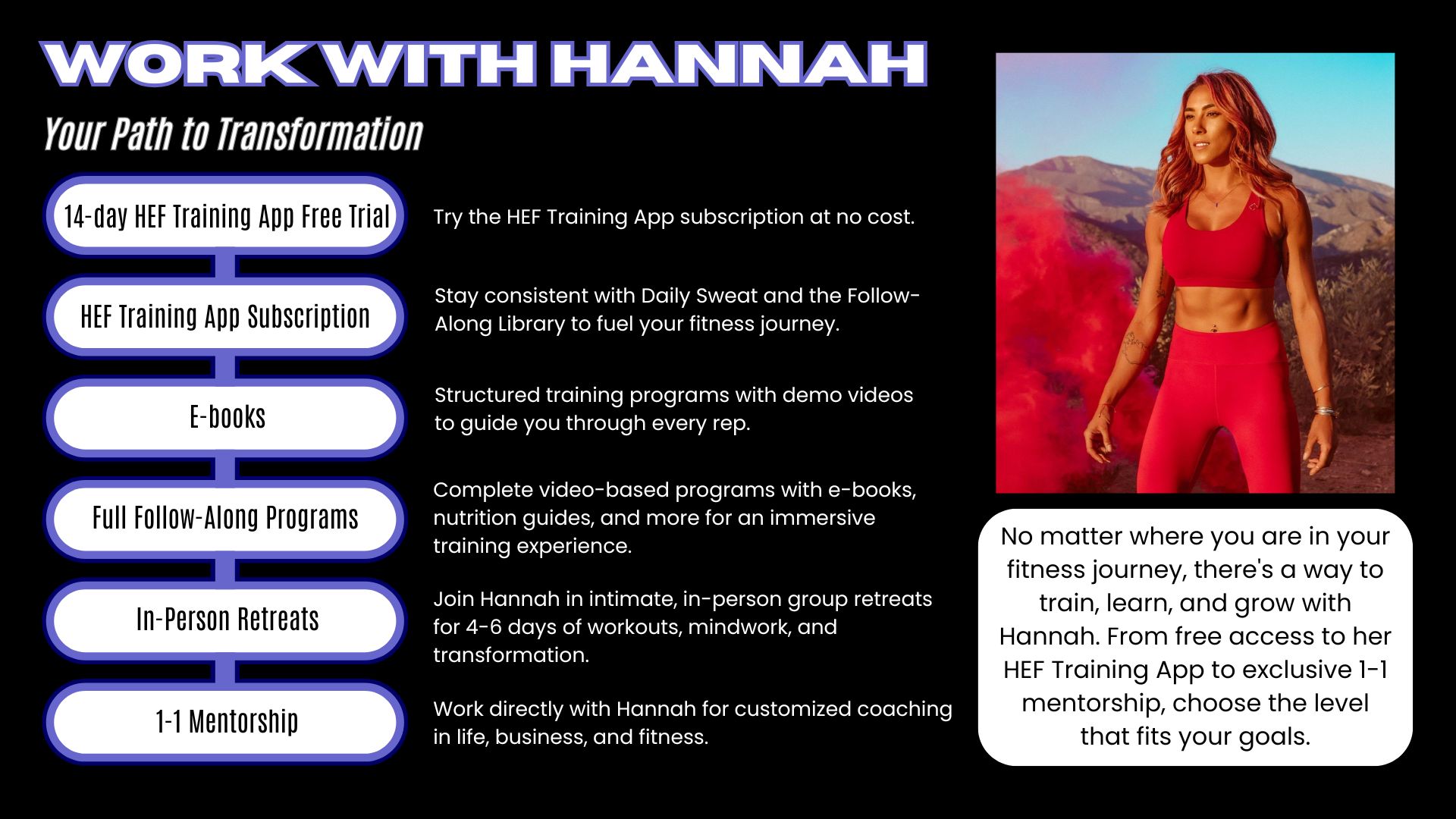
© 2025 Hannah Eden Fitness, LLC | Privacy Policy | Terms & Conditions | Secure Shopping with 100% Industry Standard SSL
This site is protected by reCAPTCHA and the Google Privacy Policy and Terms of Service apply.

© 2025 Hannah Eden Fitness, LLC | Privacy Policy | Terms & Conditions | Secure Shopping with 100% Industry Standard SSL
This site is protected by reCAPTCHA and the Google Privacy Policy and Terms of Service apply.